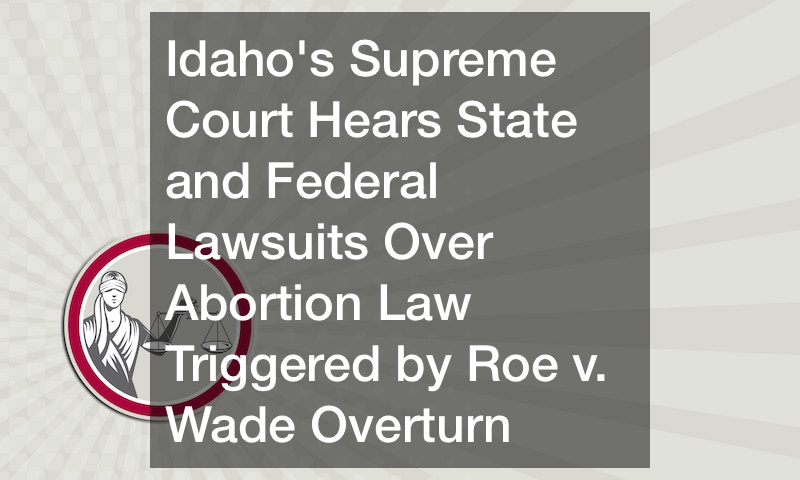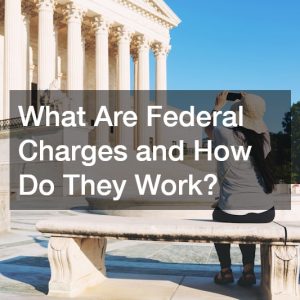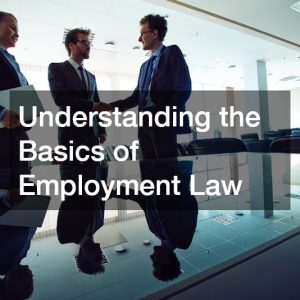
The Idaho Supreme Court debated the merits of a state law prohibiting providers from performing abortions if they don’t have a relationship with the woman and an agreement to cover medical expenses. The law has proven controversial in state and federal circles, with two separate lawsuits against the State of Idaho concerning this bill. The hearing was highly anticipated by those who oppose abortion rights and those who support them.
The trials that occur over abortion law are very controversial because it’s on a very personal level, focusing on pregnant women’s rights versus religious freedom. Likely, these types of lawsuits will only get more intense as time goes on, with more conservative views becoming more prevalent throughout society.
Approximately half of the states require women to undergo a second-trimester abortion if a fetal heartbeat is detected. These laws require women to get the support and resources necessary to terminate the pregnancy. Female patients who do not want an abortion can pursue an abortion, but they must first consult with a medical professional, allowing them to change their minds.
The controversy surrounding these laws is that they violate specific ethical requirements by medical doctors. Doctors have made it clear that early-term abortions have no adverse effects on the fetus, and you can do it when necessary to protect the life and health of both mother and child.

What Is an Undue Burden?
An undue burden is a state regulation to place a substantial obstacle in the path of a woman seeking termination of a fetus that is not viable.
Undue burden is a legal term that means an unjustified or unnecessary burden. In the abortion context, it means imposing onerous restrictions on abortion services that are unnecessary for public safety and only serve to limit access to abortion services. The phrase is from Roe v Wade which prohibits a state’s interference with a woman’s right to terminate her pregnancy, so long as other reasonable provisions to protect the mother’s life do not interfere with this right.
The use of undue burdensome has become prevalent in court decisions and litigation regarding health care providers and their work with abortions. The term refers to burdensome regulations and restrictions that are not necessary for the safety of a medical procedure by a family doctor, and courts can use it as an indication of an arbitrary or unnecessary limitation or constraint.
Undue burden is among many terms used in courts, legislatures, and academia regarding abortion services and regulation. The Supreme Court established this interpretation of the right to abortion in Roe v. Wade. This case found that abortion is a fundamental right protected by the constitution, and states may not legislate restrictions that interfere with this constitutional right.
Various negotiations have been about the definition of a reasonable restriction on a woman’s abortion rights and what is necessary to protect mothers. Proponents of abortion rights and providers claim that you should not limit abortion due to unnecessary regulations and restrictions, which are burdensome to women seeking abortions. Opponents of abortion rights and providers claim that some degree of law is necessary to uphold life and protect women’s health, safety, and fairness.
The Supreme Court defined the term undue burden defined undue burden as a substantial obstacle to overcome before there can be an infringement on a woman’s right to abortion services. The meaning of significant obstacle has evolved with case law interpretations, making it difficult to determine what it means today.

Undue Burden vs. Substantial Obstacle
The court considers a series of considerations to determine if a law is an undue burden. Courts find a rule unduly burdensome if its purpose or effect is to put a substantial obstacle in the path of a woman seeking an abortion. The court has deferred to state legislatures to determine the contours of this standard and has often embraced common sense in deciding whether there is an undue burden.
The ultimate question is whether or not a woman can reasonably obtain an abortion. The states are allowed to enact health and safety regulations as long as they do not place substantial obstacles in the path of this goal. If there is a burden involved for a woman who wants to get an abortion, you should balance that against laws designed to protect her health and safety.
The government has been trying to restrict women’s reproductive rights for decades. One of the most well-known restrictive laws is Roe v Wade, which states that pregnant women have the legal right to procure an abortion service without state interference.
Many lawyers believe it is up to women whether they want to be pro-life or pro-choice. Legal cases have arisen based on this principle where plaintiffs claim their freedom of expression, personal liberty, equal protection under the law, and other constitutional freedoms curtailed by laws related to abortion.

Eliminating Federal Abortion Laws
Many federal laws have been passed regarding abortions to regulate their provision. This law was not necessarily religious but aimed to prevent unwanted pregnancies and expensive medical procedures that could cause complications. It also prevents abortions from being funded by taxpayer dollars, with the option to opt-out of insurance plans that cover abortion.
The other law defines abortion as any procedure after a baby has been alive for 20 weeks. One thing to note about this law is its questionable constitutionality, as many pediatrics argue that it limits women’s rights to an abortion and constitutes a limit on women’s right to privacy.
Rape attorneys fight for the rights of women who become pregnant due to rape. Current Idaho state law prohibits abortion except in cases where the mother’s life is under threat and pregnancy results from rape or incest. Gov. Cottle signed legislation into law earlier this month, making it illegal for any entity other than family members to obtain an abortion for a minor without her permission.
Planned Parenthood of Idaho claims the bill violates a constitutional privacy and equality provision and federal laws barring government interference in medical procedures. The organization filed the lawsuit against the governor, the attorney general, Jody Olson, the director of Idaho’s state medical board, and the public health commissioner. The court issued a temporary injunction against law enforcement while planned parenthood challenged its constitutionality. The judge found that planned parenthood had shown a likelihood it would win its lawsuit once it proceeds because he believed that the restrictive abortion law was unconstitutional.

Abortion Lawsuits
Mallory v. Gonzales – This is one of the leading cases that will determine the future of abortion laws. Mallory is a complex case that involves two main parties sued individually. These individuals include Michele Mallory, who is suing administrator John Ashcroft and the Justice Department while also suing Attorney General Gonzales in his role as head of the DOJ. After this case, Mallory will have to decide whether she wants to sue Ashcroft or Gonzales and also whether she wants to bring her case before the Supreme Court or a lower court.
The critical issue, in this case, is if Gonzales can be held liable for the implementation of Bush’s 2003 regulations. In this situation, the accused is John Ashcroft, while Gonzales is answerable as the head of the DOJ. This suit was made because there was a belief that the rules were unconstitutional, so Gonzales should have protected those who objected to them from prosecution under the first amendment rights. This attempt to protect those whose first amendment rights are threatened could potentially limit abortion and make it more challenging for women to exercise their right to an abortion.
The other main issue, in this case, is whether HIPAA compliant telehealth platforms and clinics will be forced out of business and shut down due to not having the proper equipment or not meeting specific standards.
The state officials and family law attorneys behind this suit have tried to defend their case by saying they were making sure clinics met standards required by other clinics for other medical procedures. Those who favor abortion laws will say that these requirements stop disease and ensure women have safe abortions. Those arguing against these restrictions will say they are unconstitutional and they interfere with a woman’s right to abortion access.
This case is one of the most important cases regarding the abortion debate because it deals with one of the principal rights: the right to access abortion services and medical billing. It is also one of the most important cases for Gonzales personally, as he could potentially face jail time if he loses his case.
Idaho’s Supreme Court Hearing
The state of Idaho held a hearing on Tuesday focused on whether to uphold or overturn a state law prohibiting abortion if the fetus is capable of being born alive.
In 1973, the Supreme Court ruled in Roe v. Wade that abortion is legal in every state across America with certain exceptions, one of which includes when a fetus is determined to be able to live outside of its mother’s womb. The U.S. Supreme Court’s decision has since been up for debate in the wake of several states passing laws like Idaho’s, which have been challenged and violated the court’s ruling.
The state of Idaho held a hearing on Tuesday focused on whether to uphold or overturn a state law prohibiting abortion if the fetus is capable of being born alive.
In 1973, the Supreme Court ruled in Roe v. Wade that abortion is legal in every state across America with certain exceptions, including when a fetus can survive outside of its mother’s womb. The U.S. Supreme Court’s decision has since been up for debate in the wake of several states passing laws like Idaho’s, which have been challenged and violated the court’s ruling.
In February 2016, the state of Idaho put an initiative on the ballot to create a constitutional amendment prohibiting abortion should a fetal heartbeat be detected. The proposal stated that no person should perform or induce an abortion upon another person except as required by law.
The court has to determine whether the law violates the U.S. Supreme Court precedent set in Roe v. Wade and, if it does not, whether Idaho lawmakers granted a legitimate state interest. The courts decide whether or not Idaho’s initiative ballot law violates the 14th Amendment of the U.S.
Four attorneys on Tuesday debated whether or not the passage of Roe v. Wade in 1973 meant that lawmakers had the right to legislate laws concerning a woman’s right to terminate her pregnancy before viability, defined as the point when a fetus can survive outside of its mother’s womb.
The Idaho Legislature is not in the business of policing medical professionals, nor should it be. Instead, its intent is aesthetic and functional to convey a moral judgment on abortion and an interest in protecting the state’s authority.
In conclusion, the court concluded that they had the power to enforce Roe v. Wade as a violation of state law and ruled in favor of two pregnant women. Idaho’s Supreme Court heard state and federal lawsuits over the State of Idaho’s recent ban on abortion, which is sharply at odds with Roe v. Wade.
The Idaho State Supreme Court just issued a 4-3 ruling to uphold a legislative ban on abortions, based on Roe v. Wade – which is deeply unpopular among many Americans. It’s a state legislative maneuver that could open a path to ban abortion nationwide, depending on how family law lawyers interpret it.
In a split decision early Friday, the court upheld the most state law that banned most abortions after 20 weeks and defined life as beginning at conception. In a 4-3 decision, the justices said they have the power to enforce Roe v. Wade as a violation of state law.
The ruling comes amid an effort by the administration to appoint federal judges who could reopen the long-settled judgment, which has become an increasingly unpopular opinion among Americans. Though the ruling has been enshrined for decades, it has not affected all 50 states equally.
Roe v. Wade has been a major factor in women’s lives. Knowing what becomes of this landmark case is essential as it continues to affect society, laws, and family law attorneys’ practice.



